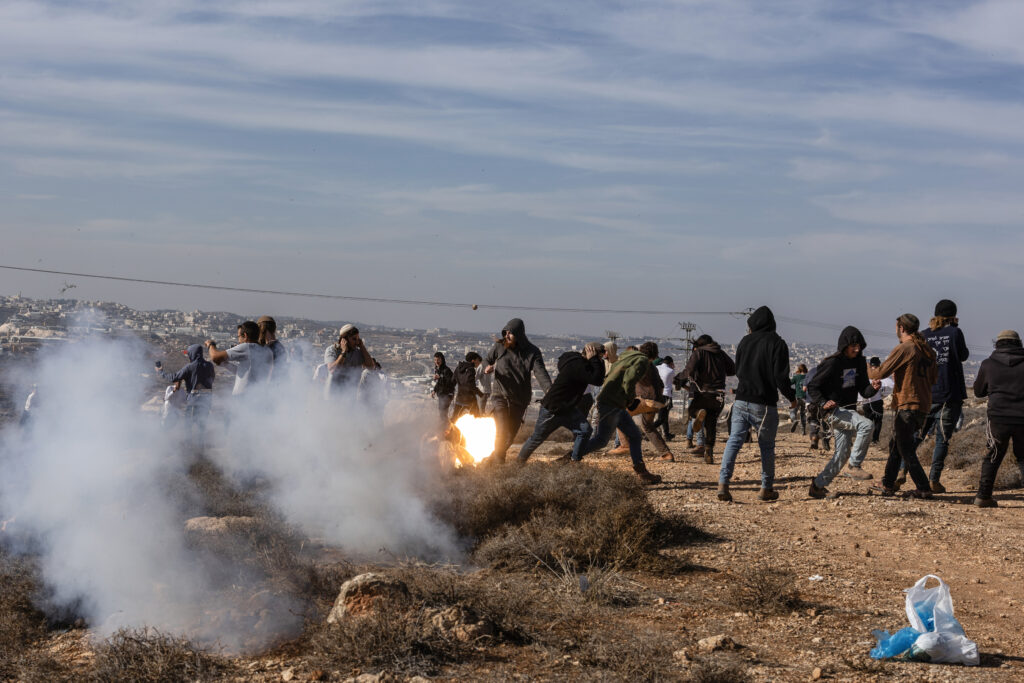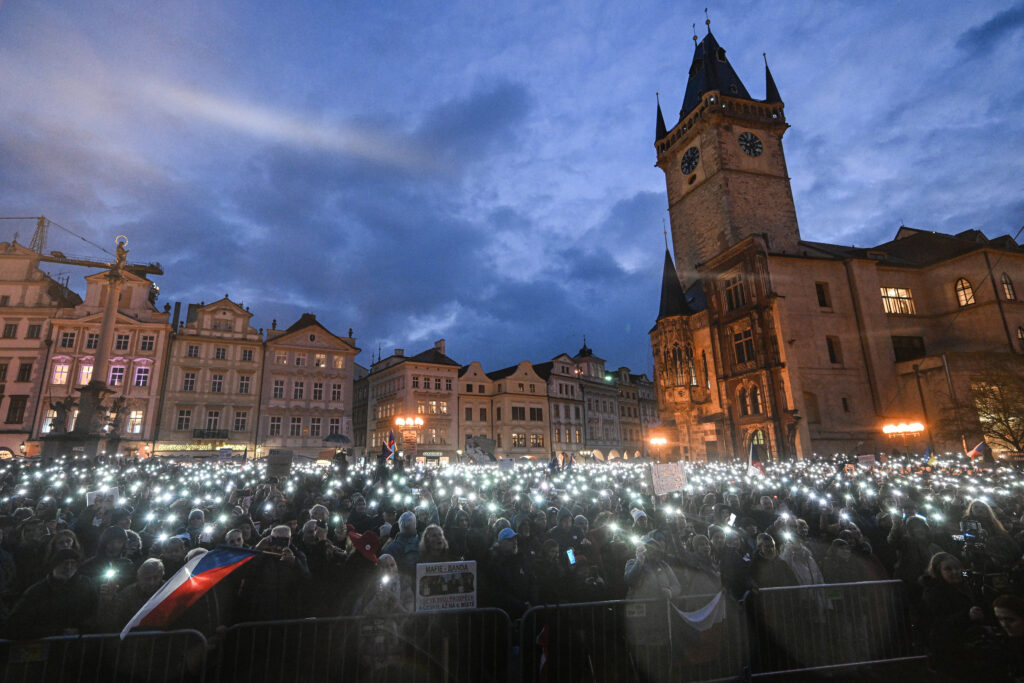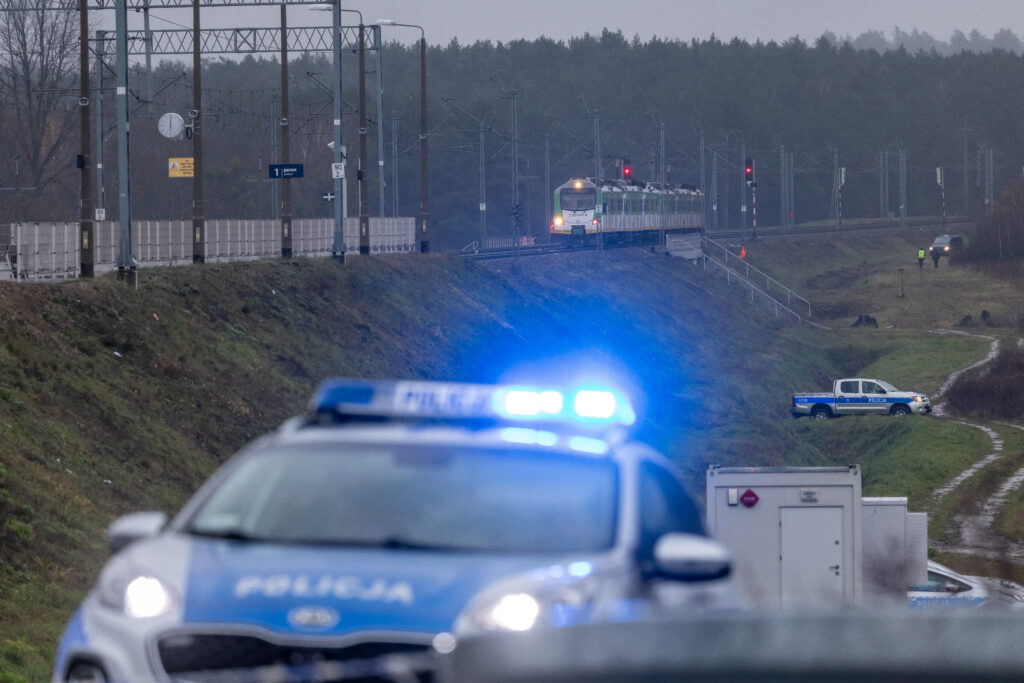Mondial-2026: soulagée et rassurée, l’Allemagne verra l’Amérique l’été prochain
L’Allemagne a assuré lundi soir son ticket pour le Mondial-2026 en Amérique du Nord (Canada, États-Unis, Mexique) du 11 juin au 19 juillet, réservant sa meilleure prestation pour cette “finale” de groupe sous pression contre la Slovaquie (6-0).Sur le papier, la présence de l’Allemagne au Mondial-2026 ne semblait être qu’une formalité pour une nation quadruple championne du monde (1954, 1974, 1990 et 2014), dans un groupe avec le Luxembourg, l’Irlande du Nord et la Slovaquie.Mais l’autoroute devant les joueurs de Julian Nagelsmann s’est transformée en chemin tortueux, après la défaite inaugurale à Bratislava contre la Slovaquie (2-0). Ils ont ensuite franchi les obstacles nord-irlandais (3-1 et 1-0) et luxembourgeois (4-0 et 2-0), non sans se faire quelques frayeurs.Face à la Slovaquie lundi soir à Leipzig, ils ont livré leur match le plus abouti de leur campagne de qualifications. Pressing intense, récupération haute et rapide de la balle, jeu vers l’avant, les Allemands n’ont pas laissé la moindre chance aux Slovaques.Homme providentiel du moment, Nick Woltemade a ouvert le score à la 18e minute. Serge Gnabry a doublé la mise onze minutes plus tard et Leroy Sané a inscrit un doublé (36e et 41e), servi dans la profondeur par Florian Wirtz, auteur de deux passes décisives lumineuses. En seconde période, Ridle Baku (67e) et Assan Ouédraogo (79e) ont inscrit leur premier but en sélection quelques minutes après leur entrée en jeu.Présente pour la 21e fois en phase finale de la Coupe du monde (en 23 éditions), l’Allemagne reste sur des éliminations dès le premier tour en Russie en 2018, alors qu’elle était tenante du titre, et au Qatar en 2022.- Outsider pour le dernier carré -Dans ce premier Mondial à 48 équipes l’été prochain, l’Allemagne devrait être tête de série pour le tirage au sort de la phase finale, le 5 décembre à Washington, avec un groupe plus abordable.Derrière l’Argentine, tenante du titre, l’Espagne, championne d’Europe, la France, l’Angleterre ou le Portugal, l’Allemagne sera parmi les outsiders pour se hisser dans le dernier carré, ce qu’elle n’est plus parvenue à faire dans une compétition majeure (Coupe du monde ou Euro) depuis une décennie (défaite contre la France en demi-finale de l’Euro-2016).Reléguée sur la scène internationale entre 2018 et 2022, la Mannschaft a entamé un retour progressif lors de l’Euro-2024 à domicile (défaite contre l’Espagne, après prolongation, en quart de finale), puis lors de la phase de groupe de la Ligue des nations 2025.Le Final 4 de la Ligue des nations et la phase de qualifications, jusqu’au match de lundi, ont fait réapparaître certains doutes.La vraie satisfaction allemande de cet automne concerne le poste d’avant-centre, en souffrance depuis le triomphe au Mondial-2014 brésilien et la retraite internationale de Miroslav Klose.Nick Woltemade, 23 ans, a marqué les esprits en sauveur de la nation à Belfast (1-0) pour son premier but en sélection en octobre, et à Luxembourg (2-0) pour son premier doublé en novembre. Et lundi, c’est lui qui a mis la Mannschaft sur la voie d’une soirée tranquille.L’impression laissée lundi soir à Leipzig devra être confirmée lors de la fenêtre internationale fin mars, la dernière avant l’annonce des joueurs retenus pour disputer la Coupe du monde, dont une rencontre à Stuttgart contre la Côte d’Ivoire, le lundi 30 mars.
Une dose infime de plastique peut tuer la faune marine, alerte une étude
Alors que des millions de tonnes de plastique se déversent chaque année dans nos océans, la quantité ingérée pouvant être fatale aux animaux ou oiseaux marins serait “bien plus faible” qu’imaginé, alerte lundi une étude.L’équivalent en plastique de presque trois morceaux de sucre pourrait ainsi être fatal à un macareux moine, aussi appelé perroquet de mer, oiseau emblématique de l’Atlantique nord, pointe-t-elle.Publiée dans la revue Proceedings of the National Academy of Sciences, cette étude s’appuie sur l’analyse de nécropsies de quelque 10.000 animaux échoués ou ayant été capturés accidentellement pour déterminer l’impact de différents types de plastique et leur possible seuil létal.La dose pouvant tuer un animal ou un oiseau marin “est bien plus faible que ce à quoi on s’attendait”, explique auprès de l’AFP Erin Murphy, chercheuse à l’Ocean Conservancy, une ONG américaine à l’origine de l’étude.Les spécimens étudiés, pour la moitié issus d’espèces en voie de disparition ou menacées, étaient morts peu de temps après avoir ingéré du plastique en raison de lésions gastro-intestinales, l’une des complications possibles.- Seau en plastique -En se basant sur ces rapports issus de dizaines d’études et bases de données venues du monde entier, les chercheurs ont mis au point deux modèles pour établir la probabilité de mort liée au nombre de morceaux de plastique ingérés et le rapport entre la taille du système digestif de l’animal et le volume de plastique consommé.Ils ont également cherché à comprendre comment divers types de plastique affectaient différemment les espèces, et ont ainsi mis en lumière la vulnérabilité particulière des oiseaux marins aux plastiques rigides et au caoutchouc et celle des tortues de mer et des mammifères marins aux plastiques souples comme les sacs d’emballage.Ils ont déterminé que chez les oiseaux, la consommation de six petits bouts de plastique, chacun plus petit qu’un petit pois, était liée à un risque de mort de 90%. Et chez les mammifères, “un seau en plastique de 11 litres a été littéralement retrouvé dans une baleine”, indique Mme Murphy.”Les données scientifiques sont claires: nous devons réduire notre production de plastique, améliorer la collecte et le recyclage, et nettoyer ce qui pollue déjà”, insiste-t-elle.- “Menace existentielle” -Pour Kara Lavender-Law, professeure d’océanographie à la Sea Education Association, cette étude est “remarquable” car elle propose une “analyse méthodique et rigoureuse des données” sur le risque de la pollution plastique des océans.Cette pollution “représente une menace existentielle pour la faune océanique”, souligne Erin Murphy, qui précise que leurs travaux ne proposent qu'”une sous-estimation de cette menace globale”.Leur étude n’évoque par exemple pas les risques liés à l’absorption de microplastiques ou encore à l’étranglement des animaux par certains plastiques comme des filets.Mais elle permet néanmoins d'”identifier les matériaux particulièrement dangereux” pour la faune, comme les ballons ou sacs plastiques, “que nous pourrions cibler par des politiques publiques”, explique-t-elle.Pour la seule année de 2019, six millions de tonnes de plastique ont fini dans les rivières, lacs et océans, selon l’OCDE.Et si ces dernières années, l’attention s’est portée sur les microplastiques, que l’on retrouve même au fin fond des océans, cette étude rappelle que la pollution plastique des océans est une problématique multiforme, souligne la professeure Lavender-Law.S’il est normal que l’on s’inquiète des micro et nanoplastiques qui imprègnent de plus en plus l’environnement et le corps humain, “cela ne signifie pas que les risques des débris plus volumineux pour les grands animaux ne constituent plus un problème réel”.
Netanyahu slams ‘extremist’ Israeli West Bank settlers
Israeli Prime Minister Benjamin Netanyahu vowed he would deal with the violent “handful of extremists” among Israeli settlers in the occupied West Bank, following clashes and another attack on Monday.Homes and vehicles in a Palestinian village were torched on Monday evening, hours after members of the so-called Hilltop Youth movement clashed with security forces who were dismantling an illegal settler outpost.Violence in the West Bank has soared since the Hamas attack on Israel triggered the Gaza war in October 2023.In recent weeks, attacks attributed to Israeli settlers, notably those living in outposts, have multiplied, targeting Palestinians and sometimes Israeli soldiers.”I view with great severity the violent riots and the attempt by a handful of extremists to take the law into their own hands,” Netanyahu said, calling the perpetrators “a group that does not represent” settlers in the Palestinian territory.”I call on the law enforcement authorities to deal with the rioters to the fullest extent of the law,” he said in a statement.”I intend to deal with this personally, and convene the relevant ministers as soon as possible to address this serious phenomenon.”Israeli security forces were deployed in their hundreds on Monday morning to evacuate and demolish the illegal Israeli settler outpost of Tzur Misgavi in the Gush Etzion area, near the Palestinian town of Sair.They fired tear gas and stun grenades as they clashed with extremist settler activists, whose goal is to evict Palestinian residents and establish settlements in the West Bank without government approval.Demonstrators clambered onto a digger and stood on top of one of the structures as a bulldozer knocked into it.At least 10 prefabricated homes were demolished. Women carrying their young children were left sitting amid the rubble afterwards.- Village attacked -Hours later, the Israeli military said it had been dispatched alongside police to the nearby Palestinian village of Jab’a, around 30 kilometres southwest of Jerusalem, following reports of “dozens of Israeli civilians who set fire to and vandalised homes and vehicles”.”Israeli security forces at the scene are conducting searches to locate involved individuals. The incident is still ongoing,” it said in a statement.”These violent incidents divert the attention of commanders and soldiers from their primary mission of defence and counter-terrorism.”Israeli opposition leader Yair Lapid said: “The riot of the Hilltop Youth in the village of Jab’a is another stage in the escalating violence.”The United Nations said October had been the worst month for West Bank settler violence since it began recording incidents in 2006, with 264 attacks that caused casualties or property damage.Almost none of the perpetrators have been held to account by the Israeli authorities.- ‘Shaming Judaism’ -Israeli Foreign Minister Gideon Saar said the “Jewish rioters” in the West Bank were harming Israel, “shaming Judaism and causing damage to the settlement enterprise”.Defence Minister Israel Katz said the government would “continue to develop and grow settlements” while upholding the law “and the stability of the region, as he condemned the “criminal anarchists”.Israel’s military chief Eyal Zamir last week pledged to halt settler violence in the West Bank, following a wave of attacks targeting Palestinians.Israel has occupied the West Bank since 1967, and more than 500,000 Israelis now live there in settlements, alongside some three million Palestinians.While all Israeli settlements in the Palestinian territory are illegal under international law, outposts are also prohibited under Israeli law. However, many end up being legalised by the Israeli authorities.At least 1,006 Palestinians, including militants, have been killed in the West Bank by Israeli forces or settlers since the Gaza war started, according to the Palestinian health ministry.During the same period, 43 Israelis, including soldiers, have been killed in Palestinian attacks in the West Bank, according to official Israeli figures.
US judge rebukes Justice Dept over case against Trump foe
A federal judge said Monday that potential government misconduct and investigative missteps could be grounds for dismissal of the criminal case against former FBI chief James Comey, a prominent foe of President Donald Trump.Comey, 64, is one of three vocal Trump critics indicted recently in what has been widely seen as a campaign of retribution against the president’s political opponents.Comey has pleaded not guilty to charges of making false statements to Congress and obstructing a congressional proceeding.Magistrate Judge William Fitzpatrick, in a blistering 24-page opinion, ordered prosecutors in an extraordinary move to hand over grand jury materials in the case against Comey to his defense team.”The Court recognizes that the relief sought by the defense is rarely granted,” Fitzpatrick said.”However, the record points to a disturbing pattern of profound investigative missteps, missteps that led an FBI agent and a prosecutor to potentially undermine the integrity of the grand jury proceeding.”The judge said the US district attorney who brought the case against Comey — a prosecutor handpicked by Trump — had made “fundamental misstatements of the law that could compromise the integrity of the grand jury process.””Irregularities that occurred before the grand jury, and the manner in which evidence presented to the grand jury was collected and used, may rise to the level of government misconduct resulting in prejudice to Mr Comey,” he said.Grounds may exist to dismiss the indictment because of the handling of grand jury proceedings by the prosecution, the judge said.- ‘Vindictive’ -Comey has filed a separate motion seeking to have the charges thrown out on the grounds they are motivated by the “personal spite” of Trump and constitute a “vindictive and selective prosecution.”New York Attorney General Letitia James, who has also been indicted by the Trump Justice Department, has sought to have her case tossed on the same basis.James, who successfully prosecuted Trump for business fraud, has been indicted in Virginia on one count of bank fraud and a second count of making false statements to a financial institution.Another Trump critic, his former national security advisor John Bolton, has been indicted on 18 counts of transmitting and retaining classified information.Comey was appointed to head the FBI by then-president Barack Obama in 2013 and was fired by Trump in 2017.The charges against Comey came days after Trump publicly urged Attorney General Pam Bondi to take action against the former FBI director and others he sees as enemies — a stunning departure from the principle that the Justice Department must be free from White House pressure.The 79-year-old Trump — the first convicted felon to serve as US president — hailed the indictment, calling Comey “one of the worst human beings this country has ever been exposed to.”Since taking office in January, Trump has taken a number of punitive measures against perceived enemies, purging government officials he deemed to be disloyal, targeting law firms involved in past cases against him and pulling federal funding from universities.
Trump says will talk to Venezuela’s Maduro, ‘ok’ with US strikes on Mexico
President Donald Trump said Monday he will talk to Venezuela’s Nicolas Maduro as Washington’s military buildup stokes tensions, and added that he would be “OK” with US anti-drug strikes inside Mexico. Trump has dramatically increased the number of US forces in the Caribbean to tackle what he calls drug traffickers based in a number of Latin American countries including Venezuela and Mexico.”At a certain period of time, I’ll be talking to him,” Trump told reporters in the Oval Office when asked if he would speak to Maduro, while adding that the Venezuelan president “has not been good to the United States.”Asked if he would rule out US troops on the ground in Venezuela, Trump replied: “No I don’t rule out that, I don’t rule out anything.”We just have to take care of Venezuela,” he added. “They dumped hundreds of thousands of people into our country from prisons.”Venezuela has accused Washington of seeking regime change in Caracas with its military build-up including an aircraft carrier group, warships and several stealth jets.Washington accuses of Maduro of leading a “terrorist” drug cartel, a charge he denies.But Trump has also accused Mexico of failing to tackle drug trafficking groups, and stepped up his rhetoric towards the United States’s southern neighbor.”Would I launch strikes in Mexico to stop drugs? It’s OK with me. Whatever we have to do to stop drugs,” Trump said when asked by reporters at the White House whether he would sanction a US counter-drug operation in Mexico.”I didn’t say I’m doing it, but I’d be proud to do it. Because we’re going to save millions of lives by doing it.”
Trump’s Frankenstein? MAGA meltdown tests its creator
Donald Trump’s “Make America Great Again” movement is showing the first signs of turning on its creator. Could it be a Frankenstein moment for the US president?During the course of one frenetic weekend, Trump disowned former MAGA cheerleader Marjorie Taylor Greene and performed a screeching U-turn on the Jeffrey Epstein files.Trump’s meltdown underscores the cracks that have opened in between the right-wing movement and the billionaire founder who has for years ruled it with an iron fist.The turmoil has also punctured the aura of invincibility that Trump and the White House have sought to cultivate since his return to power — raising questions about whether Trump has created a Frankenstein-like monster he can no longer control.”MAGA was my idea,” he protested in an interview with Fox News last week — itself notable as normally pro-Trump host Laura Ingraham confronted him on whether visas for foreign students were “pro-MAGA.””I know what MAGA wants better than anybody else.” – ‘Not America First’ -Not long ago, Marjorie Taylor Greene was perhaps Trump’s biggest booster.As recently as March, the Republican firebrand from Georgia was pictured sporting a red a “Trump Was Right About Everything” baseball cap as the president addressed Congress.But fast forward eight months, and Trump raged that he was no longer backing his once diehard supporter, dubbing her “Marjorie Traitor Greene.” The split came after Greene distanced herself on a host of issues that she shares with other discontented MAGA faithful: affordability, healthcare, Israel, visas for foreign workers and students, and Trump’s focus on foreign policy.Greene hit back, saying on Sunday that Trump’s words had “put my life in danger” and insisting that “I remain America First and America Only!!!”She also highlighted another key issue. “Unfortunately, it has all come down to the Epstein files, and that is shocking,” she told CNN.- ‘Nothing to hide’ -The scandal over the disgraced financier’s sexual abuse has become a seismic fault line for the MAGA movement.In an astonishing reversal on Sunday, Trump suddenly called on Republicans to support a vote in the US House to release files from the investigation into Epstein, saying “we have nothing to hide.” He had previously called on rebels like Greene and fellow MAGA lawmaker Lauren Boebert not to fall into the “trap” of voting for it.Far from any change of heart, however, Trump’s turnaround appeared to be a way of avoiding what would have been the biggest political defeat of his second term so far.Yet the pressure from the issue — which distracted from Trump’s victory lap in ending a record US government shutdown — is unlikely to go away. Anger had already been brewing in the MAGA ranks for months.Conspiracy-minded MAGA faithful were long told by Trump’s supporters that the scandal was a Democratic cover-up — only for Trump’s Justice Department to say in July that effectively there was nothing new in the files.- 2028 looms -Rumbles of MAGA discontent have been growing on other subjects too. The loudest complaints came after Republicans were hammered on the cost of living in off-year elections earlier this month.Sensing trouble, Trump has responded by planning a series of speeches about the economy, including one to a summit hosted by fast food giant McDonald’s on Monday.MAGA ranks have also been split over US media star Tucker Carlson interviewing open white nationalist Nick Fuentes. Key right-wingers were outraged — even as Trump insisted on Sunday that “you can’t tell him who to interview.”While Trump still commands fierce loyalty among many supporters, the splits are only likely to deepen as he enters the lame duck phase of his final term.Eyes are already turning to 2028 — and the battle to be Trump’s true MAGA political heir.Trump’s vice president JD Vance is widely considered the frontrunner, but is viewed in parts of the US right as insufficiently committed to the movement.Could it leave an opportunity for Greene? She has denied any thought of a presidential run — but stranger things have happened in US politics.
Tchèques et Slovaques dans la rue par milliers pour la démocratie
Les Tchèques et les Slovaques se sont rassemblés par milliers lundi à l’occasion des commémorations de la Révolution de Velours, accusant les dirigeants Andrej Babis et Robert Fico de trahir l’héritage de la transition vers la démocratie.Le 17 novembre 1989, les communistes tchécoslovaques avaient réprimé une marche pacifique, déclenchant une riposte qui a renversé le …
Tchèques et Slovaques dans la rue par milliers pour la démocratie Read More »
Varsovie dénonce le “sabotage” d’une voie ferrée menant vers l’Ukraine
Varsovie a dénoncé lundi un “acte de sabotage sans précédent”, après la destruction à l’explosif dans le centre de la Pologne d’une portion de voie ferrée sur une ligne cruciale pour le transport de passagers, d’armes et de marchandises vers l’Ukraine.Depuis le début de l’invasion de l’Ukraine par la Russie en février 2022, la Pologne, …
Varsovie dénonce le “sabotage” d’une voie ferrée menant vers l’Ukraine Read More »







